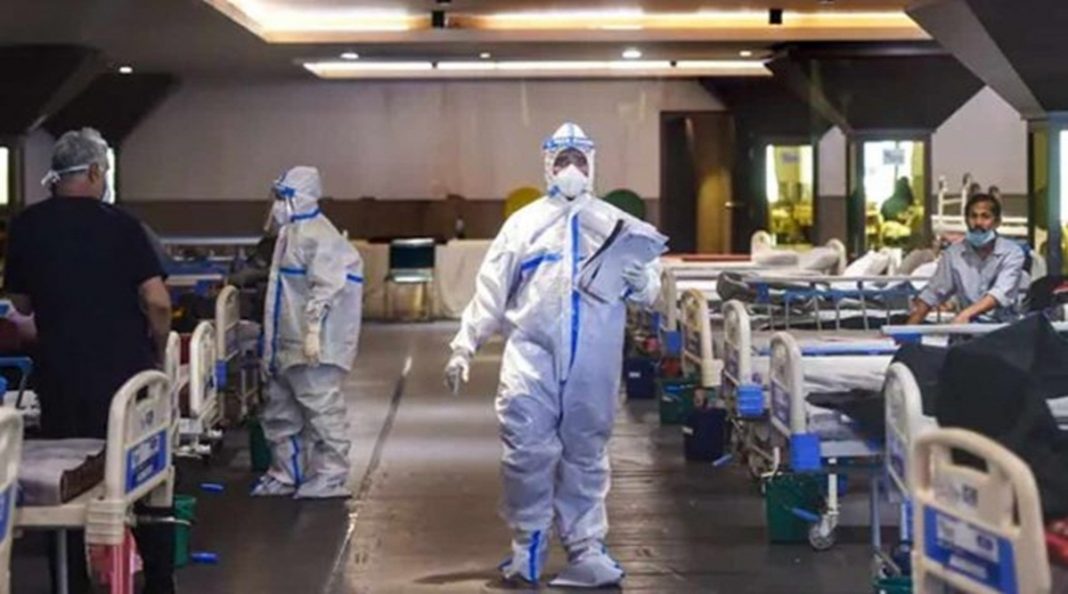The World Health Organisation (WHO) and the European Centre for Disease Control and Prevention have declared the BA.4 and BA.5 sub-variants of Omicron as ‘variants of concern’. According to doctors and health experts, these two sub-variants of Omicron are different from the previously reported ones – BA.1 and BA.2 – that caused the third wave in India in January. According to reports, South Africa has seen a rapid increase in COVID-19 cases, and authorities believe that BA.4 and BA.5 are responsible. Meanwhile, the National Institute of Clinical Diseases in South Africa reports that BA.4 and BA.5 are “Omicron viruses with a new combination of mutations.” In January this year, scientists detected BA.4 and BA.5 was identified in February this year. How BA.4 and BA.5 different from the ones that caused the third wave of COVID-19 in India? When these sub-variants were discovered, India was witnessing the third wave of COVID-19. Over the next four months, BA.4 and BA.5 became the dominant variants in circulation in South Africa. According to the National Institute of Communicable Disease-South Africa, these variants collectively replaced 55 percent of the other COVID-19 variants. Although these variants are responsible for BA.4 and BA.5 are responsible for South Africa’s fifth wave, some health experts and scientists say that they are unlikely to cause any surge in India. “Though BA.4 and BA.5 share many of the mutations of the original Omicron variant, it has more similarity to the BA.2 variant. Though they differ in mutations, both BA.4 and BA.5 have identical mutations in their spike protein gene with which the virus gains entry into cells and also forms an important target for vaccination,” Dr. Viswesvaran Balasubramanian, Consultant Interventional Pulmonology and Sleep Medicine, Yashoda Hospitals Hyderabad told Financial Express.com. Dr. Anurag Agarwal, former head of INSACOG and the chair of WHO’s Technical Advisory Group on Virus Evolution, in a tweet said, “Antigenically – quite dissimilar to BA.1, so humoral cross-protection will decline. (Antibodies will be less effective).” True. Antigenically – quite dissimilar to BA.1, so humoral cross-protection will decline— Anurag Agrawal (@AnuragAgrawalMD) May 18, 2022 This, coupled with the waning immunity from vaccines, is likely to lead to the two sub-variants propagating, the European CDC said. Experts maintain that the Omicron variant of COVID-19 led to less severe disease in most places, including India, because it mainly affected the upper respiratory tract, unlike Delta that severely affected the lungs leading to higher hospitalisations, requirement for oxygen, and deaths. Are the two sub-variants likely to cause more severe disease, hospitalisations? Reportedly, BA.4 and BA.5 don’t seem to be causing an increase in hospitalisations and deaths in South Africa. In India, scientists assure that BA.4, BA.5 don’t pose a major risk for the country. “Wave of infections in SA has peaked with, so far, low hospitalisations and deaths. Interesting that, so far, in countries with a large BA.2 wave, the BA.4 and BA.5 seem to be increasing slowly,” said director of Centre for Epidemic Response and Innovation-South Africa Tulio de Oliveria in a tweet. He is also a member of the WHO group tracking the evolution of Covid-19. During India’s third wave of COVID-19 BA.2 was the dominant sub-variant and it accounted for 62 percent of the sequences from India over the last two months. Dr. Balasubramanian also said that the new variants carry an L452R mutation, which was previously detected in the Delta variant and this is expected to make the virus more contagious by enhancing the virus’s ability to attach to human cells and evading the immune response. Can these variants cause another surge in cases in India? According to Dr. Balasubramanian, the F486V mutation that these mutants harbour also aids in immune evasion. “Such mutations also affect the results of PCR tests, leading to a phenomenon called S-gene dropout which helps in tracking these mutants in countries where BA.2 is dominant, he added. In January this year, the Omicron variant led the COVID-19 wave and it led to a rise in cases. However, hospitalisations did not increase proportionally. According to doctors and experts, the majority of the country’s population has had the infection and been vaccinated and the sub-variants are unlikely to cause havoc. “Limited evidence suggests that BA.4 & BA.5 are not associated with new symptoms or more severe disease. However, more data is required to confirm the findings. Studies also observed that antibodies were less effective against the new mutants,” Dr. Balasubramanian said.
From: financialexpress
URL: https://www.financialexpress.com/healthcare/covid-19/how-omicrons-sub-variants-ba-4-and-ba5-declared-as-variants-of-concern-will-affect-india/2532544/



